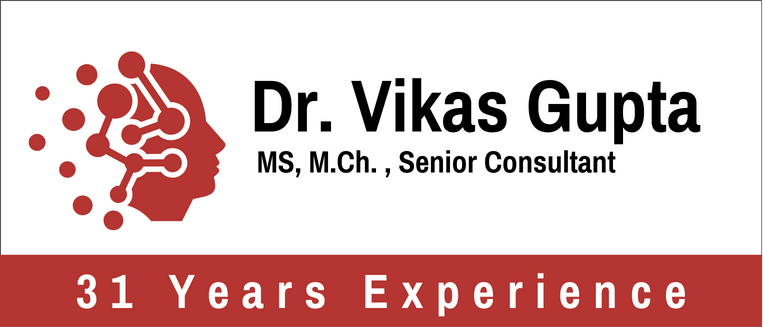
Neurological disorders affect millions worldwide, posing a significant health burden. Among these, stroke stands out as a leading cause of death and long-term disability, impacting around 17 million individuals annually. Aneurysmal subarachnoid hemorrhage (SAH), though comprising only 5% of all strokes, results in a disproportionate amount of stroke-related morbidity and mortality.
Approximately 80% of aneurysms occur in the anterior circulation, with the remaining 20% in the posterior circulation. Intracranial aneurysms, which affect up to 5% of the population and are more prevalent in women, are a significant concern.
This article explores the role of interventional neuro-radiology in treating these and other neurological conditions.
What is Interventional Neurosurgery?
Interventional Neuroradiology (INR), or Neuro-Interventional Surgery (NIS), is a specialized field that uses minimally invasive procedures to diagnose and treat conditions affecting the brain, head, neck, and spine. These procedures are guided by imaging techniques such as fluoroscopy, computed tomography (CT), and magnetic resonance imaging (MRI). INR techniques have revolutionized the treatment of various neurological conditions, offering patients less invasive alternatives to traditional surgery.
Dr. Vikas Gupta is known for his expertise in treating complex neurological conditions using minimally invasive techniques. With a focus on interventional neurosurgery, Dr. Vikas specializes in procedures such as coiling for cerebral aneurysms, thrombectomy for stroke, and embolization for arteriovenous malformations. His innovative approach and high success rates have made him a trusted name in the field, offering patients safer and more effective treatment options.
What Conditions Are Treated by Interventional Neuro-Radiology?
Interventional Neuro-Radiology can treat a number of Conditions. This includes:
- Cerebral Aneurysms: INR can treat cerebral aneurysms using techniques such as coiling, stenting, or flow diversion to prevent rupture or re-rupture.
- Stroke: INR plays a crucial role in treating acute ischemic stroke, often using thrombectomy to remove blood clots from blocked arteries in the brain.
- Arteriovenous Malformations (AVMs): Arteriovenous Malformations are abnormal tangles of blood vessels that can be treated with embolization, reducing the risk of bleeding or rupture.
- Dural Arteriovenous Fistulas (DAVF): INR can treat DAVFs by blocking abnormal connections between arteries and veins in the dura mater.
- Brain Tumors: Certain types of brain tumors, such as meningiomas or gliomas, can be treated with embolization or intra-arterial chemotherapy delivered directly to the tumor.
- Spinal Vascular Malformations: Using embolization techniques, INR can treat spinal vascular malformations, such as arteriovenous fistulas or arteriovenous malformations.
- Head and Neck Tumors: INR can help treat head and neck tumors by delivering targeted therapies directly to the tumor site.
- Compression Fractures: Vertebral compression fractures caused by osteoporosis or trauma can be treated with vertebroplasty or kyphoplasty, which stabilizes the fracture and relieves pain.
One satisfied patient expressed, “I underwent interventional neuro-radiology for an AVM in my brain, and I’m thrilled with the outcome. The procedure was minimally invasive, and my recovery was quicker than anticipated. Dr. Vikas Gupta and his team were highly skilled and supportive throughout. I’m thankful for their expertise and care.”
Another pleased patient shared, “Following a stroke, I received a thrombectomy using interventional neuro-radiology. The procedure was successful, and I’ve regained much of my mobility and independence. Dr. Vikas Gupta and his team were outstanding in their approach and skills. I wholeheartedly recommend them to anyone needing neuro-interventional surgery.”
How much does Interventional Neuro-Radiology cost in India?
The cost of interventional neuro-radiology procedures in India ranges from INR 50,000 to 3,00,000 or more for procedures like coiling for cerebral aneurysms or thrombectomy for stroke. This would cost approximately $700 to $4,000 or more. The cost can vary depending on the specific procedure, hospital, and location. It’s essential to consult with a healthcare provider or hospital for exact pricing details, as costs can vary.
Conclusion
Interventional neuro-radiology has emerged as a vital and rapidly evolving field in managing various neurological conditions. Its minimally invasive techniques and high success rates offer patients safer and more effective treatment options than traditional surgery. As technology advances, the scope of interventional neuro-radiology will likely expand, further improving outcomes for patients with neurological disorders.
FAQs
1. Can interventional neuro-radiology treat all types of brain tumors?
No, interventional neuro-radiology is most effective for certain types of brain tumors, such as those that can be targeted with embolization or intra-arterial chemotherapy.
2. Are all cerebral aneurysms treated with coiling or stenting?
No, the treatment approach depends on the aneurysm’s size, location, and other characteristics.
3. Is interventional neuro-radiology the same as traditional brain surgery?
No, interventional neuro-radiology uses minimally invasive procedures guided by imaging techniques, while traditional brain surgery involves open surgery.
4. How long does a typical interventional neuro-radiology procedure take?
The duration of a procedure varies depending on the complexity, but it typically ranges from 1 to 3 hours.
5. Are there any risks associated with interventional neuro-radiology procedures?
Like any medical procedure, risks are involved, but they are generally low. Potential hazards include bleeding, infection, or allergic reactions to contrast dye.
Explore more blogs: Role of Neuro Intervention in Neurological Care
